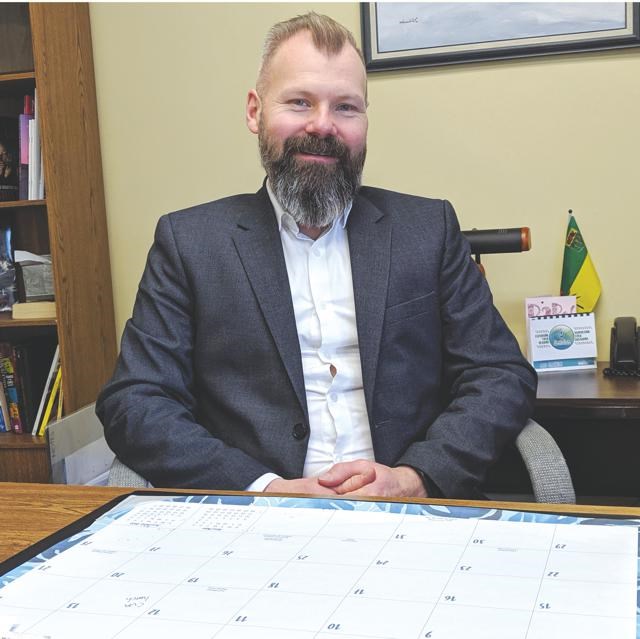There have been positive developments in Weyburn and in the Weyburn-Big Muddy constituency in the past year, and the new year is looking positive, said MLA and Environment minister Dustin Duncan in a year-end interview.
He noted there has been significant progress made this year in the construction of both the new elementary school and the Weyburn Recreation and Culture Centre (WRCC) on Fifth Street.
“That’s really exciting for the entire community, especially for the school system,” he said, adding Weyburn also received $2.5 million in the spring budget towards the planning for the city’s new acute-care hospital.
“We’re moving forward and are making progress,” said Duncan, noting his riding office gets more calls about the new hospital than anything else, and is “the most highly-anticipated project in the city of Weyburn.”
This money will go towards ensuring the planning of the new facility, such as how many beds it will have and its design, he said.
Many of the questions that he gets include when it will be built and where, and said, “I’m hoping we’ll have some answers sooner than later.”
A key highlight for his government this year was a new strategic growth plan unveiled by Premier Scott Moe for 2020 and beyond, with the goal that this new plan will help guide the province for the next decade.
“For the most part it was very well received,” said Duncan, noting the plan set goals for population and job growth.
“We were a little short in our population numbers, but we did quite well in adding 180,000 people in the last decade,” said Duncan, noting the population is at 1.2 million now, after Saskatchewan historically struggled for a long time to get the numbers to one million residents.
“It’s better to set goals so there’s something you’re working towards rather than not setting goals,” he said.
In Duncan’s ministerial role for the Environment, he’s had the opportunity to talk to the new federal environment minister, passing on the belief that Saskatchewan believes there is more they can do with their environmental plan than by levying taxes.
The new federal government is not yet willing to rescind the carbon tax, he said, “but there is growing interest to see the role that technology can play” in reducing greenhouse gas emissions, and he is talking to the new federal minister about areas the province can work on environmentally.
One of the areas of technology they are looking at is developing nuclear technology, noting that the premier signed a memorandum of understanding in October with New Brunswick on developing the technology for Canada.
The next provincial election is coming up in October of 2020, and Duncan will be running in his fifth election as a candidate. He noted that he is currently the second-longest serving cabinet minister in Canada, as he has been in the cabinet since 2007, and cabinet colleagues Don Morgan and Donna Harpauer are the longest-serving.
He said he has a lot of support from the riding association, with plans being put in place for the campaign, and a space is being locked down for the campaign office in Weyburn.
“For the most part, the actual aspects of the election are pretty consistent, and for the logistics part, we have a good plan in place,” said Duncan.
Aside from the election, he said, “I’m pretty optimistic about 2020. I guess we’ll see what 2020 brings in terms of the economy.”
Considering some of the challenges, such as to export trade, Duncan said they don’t want to completely rely on the federal government to manage trade issues, such as trade relations with China.
“Part of our growth plan is we’re going to establish permanent trade offices with our trading partners. We’ve always been pretty successful, especially when our premier takes on trade missions,” said Duncan. “We need to have a full-time presence in some of these places we trade with. We think that will help open up doors.”
He added they will have to see what opportunities might come up with the new USMCA trade agreement signed earlier in December, and how this affects trade with the United States.
“For us, it’s agriculture and oil” as the biggest commodities sent into the U.S., he added, and commented, “We’ll continue to advocate for those industries.”



